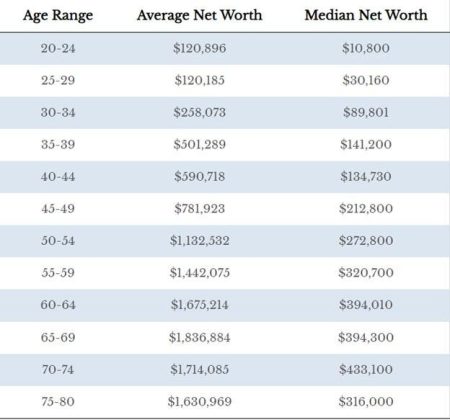We have recently launched our 2023 Global Family Office Compensation Benchmark Report created in collaboration with KPMG Private Enterprise. Based on responses from more than 650 Family Office professionals worldwide, the report examines compensation trends in the Family Office space as well as trends in hiring and governance.
Family Offices have often struggled with compensation as a result of the lack of information and the discrete nature of the industry. Throughout the years, Family Offices have professionalised and grown into sophisticated entities that require high-calibre professionals to match. These Family Office professionals are often drawn from standardised and benchmarked industries, meaning that they are accustomed to a consistent compensation structure. We believe that as the industry mature and grow, compensation should no longer be a product of guesswork but rather, it should be built on research. This article draws data from the 2023 Global Family Office Compensation Benchmark Report and unveils the compensation of the top Family Offices executives across the world.
We will first break down the common compensation of Family Office Chief Executive Officers (CEOs) in different regions. The CEO is the highest-ranking executive in a Family Office and oversees the operation and management. Traditionally, the CEO is often a member of the family behind the Family Office. This has changed over the years. We found that apart from the Middle East, over 69% of CEOs in all other regions are non-family members. This is a great indication that Family Offices worldwide are becoming increasingly professionalised and institutionalised. More non-family members are anticipated to serve as Family Office executives in the near future.
According to our findings, most Family Office CEOs in Europe receive around €198k–264k (~USD$216k-288k) with a 21-30% additional bonus. In the UK, Family Office CEOs typically take home around £198k–264k (~USD$252k-337k) with a bonus that goes up to 41%–50% of their salary. Additionally, 9% of the CEOs in the UK get to take home over £1M in salary. On the other side of the globe, Family Office CEOs in the USA commonly receive USD$264k–330k alongside 21-30% additional bonus. Impressively, 13% of CEOs in the USA can take home USD$1M of base salary. The neighbouring Americas region sees an average of USD$198k–264k alongside a 21-30% additional bonus, with 10% earning over USD$1M in base salary.
The average salary range of Family Office CEOs in Asia ranges from SGD$158k to 500k (~USD$118k-374k), with an additional bonus of 21-30%. Australian CEOs are commonly paid AUD$396k–500k (~USD$271k-343k) with an additional annual bonus of 21% to 30% of their salary. Interestingly, in the Middle East, the CEOs of Family Offices have as much chance of earning USD$264k–330k, as earning over USD$1M at 25%. On top of that, 50% are able to earn more than 200% of their salary as an additional bonus, making them the most well-paid in the world.
Investment is central to a Family Office. The three main purposes of Family Offices, as per our respondents, are the administration of family wealth, wealth preservation and risk-adjusted growth. Consequently, Chief Investment Officer (CIO) plays a key role in the long-term success of a Family Office. They are responsible for managing the investment portfolios as well as growing the family wealth for generations to come. CIOs are often drawn from the very competitive investment and wealth management industries, therefore compensating them to or above the market standards is essential. According to our report, CIOs in the UK typically take home £198k–264k (~USD$252k-337k) and most European CIOs receive €158k–198k(~USD$172k-216k).
CIOs of Family Offices are found to be the most well-paid in the USA and the Americas region where they commonly receive over USD$1M as their base salary. In Asia, CIOs are most commonly paid SGD$264k-330k (~USD$197k-247k), with 17% of them receiving over SGD$1M (~USD$748k+). In Australia, CIOs typically receive AUD$198k–264k(~USD$136k-181k). In the Middle East, most CIOs receive USD$198k–264k, contrary to the CEOs’ salary in the region, we found that no Middle Eastern CIOs receive over USD$1M as their base salary.
Apart from the base salary, our report has also covered the other elements of compensation. While it is fairly common for Family Offices to offer performance bonuses, we found that Long-Term Incentive Plans (LTIPs) are often overlooked in the Family Office space. The USA has the highest percentage of professionals receiving an LTIP as part of their compensation at only 34%, whereas Asia has the lowest at 11%. We believe that it is crucial for Family Offices to include LTIPs in the compensation package for their executive employees. LTIPs can effectively align the interests of the executives and have a direct impact on the long-term success of the Family Office. From our experience of engaging with Family Offices, we found that an absence of LTIP may lead to a loss of critical employees and a lack of incentives among staff.
Drawing on the responses we received, we believed that Family Offices are ready to adjust their compensation structure in order to remain competitive in the talent race against other wealth management institutions. 58% of the Family Office professionals received an uplift in their salary in 2022. Overall, we have a positive outlook for Family Offices. Despite a worldwide economic downturn in 2022, 41% of Family Offices reportedly expanded the size of their teams in 2022 and a further 40% plan on hiring more staff in 2023. As the industry further grows in maturity, the compensation of top Family Office employees is set to rise.
Read the full article here









